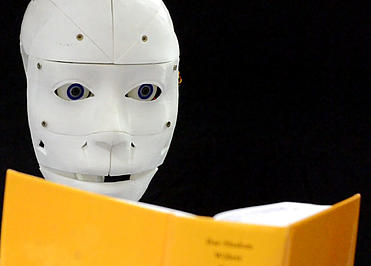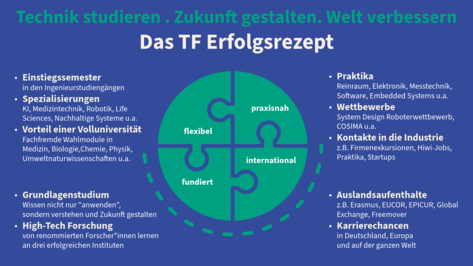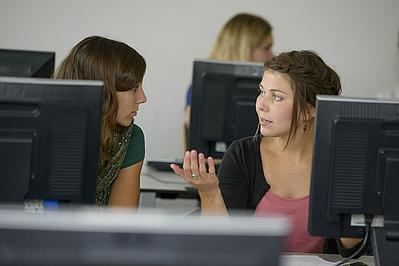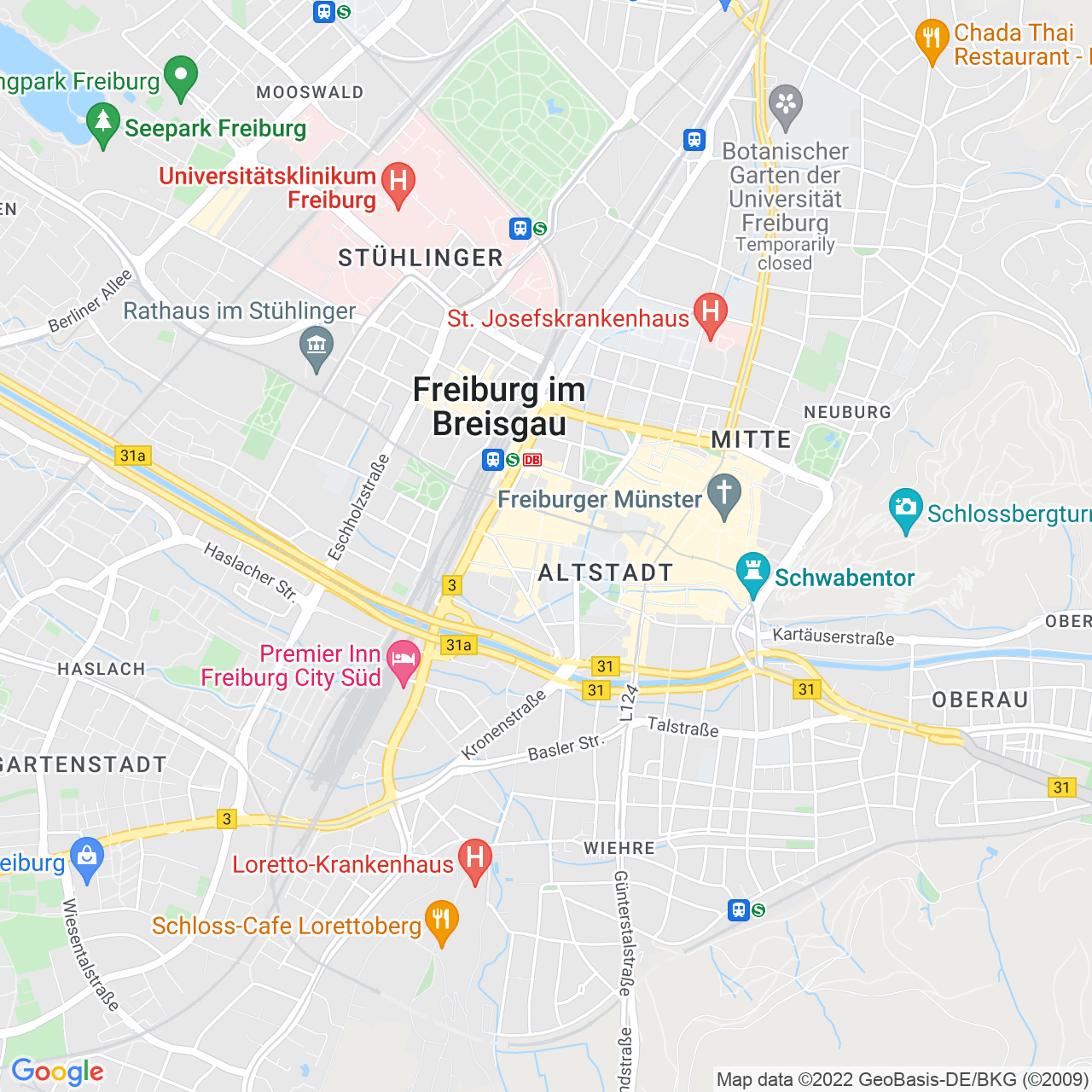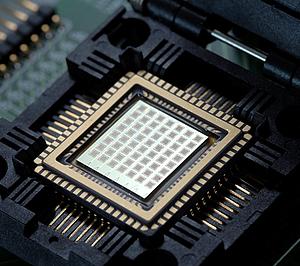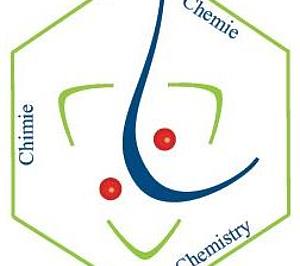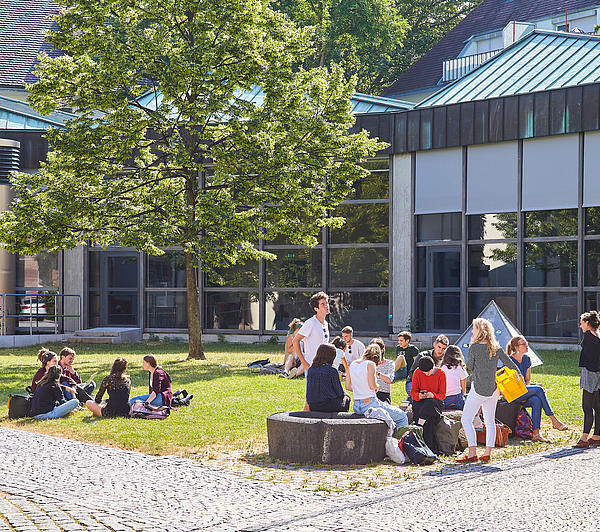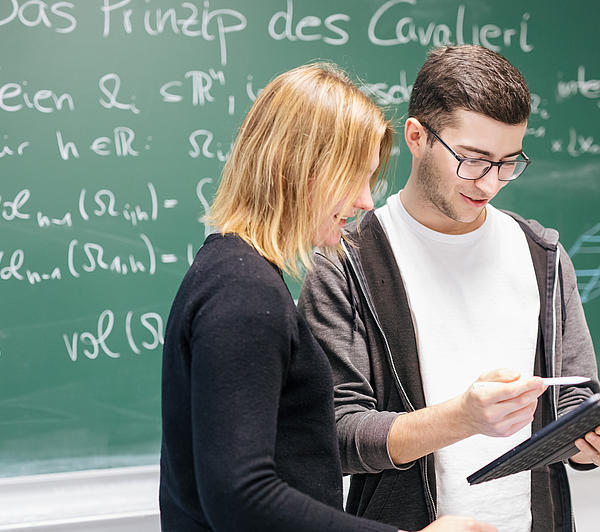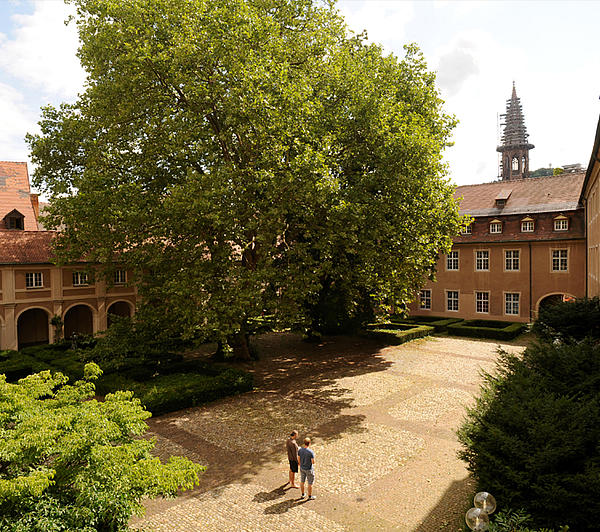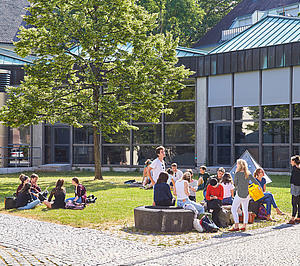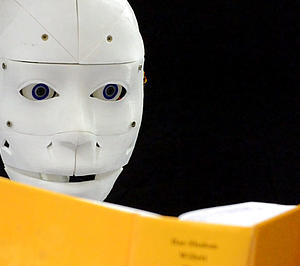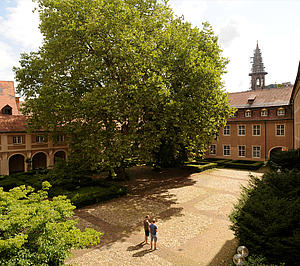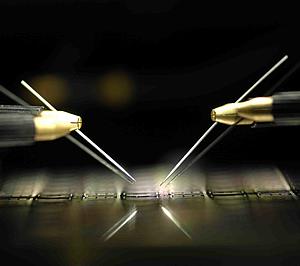Informatik an der Universität Freiburg. Wir schreiben Zukunft!
Roboter, die selbstständig handeln, Computer, die lernen Bilder zu verstehen, gedankengesteuerte Prothesen oder Algorithmen, die immer schneller und intelligenter werden, entwickeln – so spannend und vielfältig ist die Informatik in Freiburg. Wir lehren und forschen zu Themen, die in Zukunft unseren Alltag prägen werden.
Ohne Informatik geht nichts mehr
Schon jetzt ist die Informatik aus unserem Leben nicht mehr wegzudenken. Sei es, wenn wir unser Smartphone verwenden, mit dem Auto (autonom) unterwegs sind oder im Internet eine Suchanfrage stellen. Von Medizin über Betriebswirtschaft, Maschinenbau, Biologie, Psychologie bis hin zur Soziologie und Archäologie – alle Lebensbereiche und Wissenschaften sind heute auf die Informatik angewiesen. Erlernen Sie bei uns die notwendigen Kompetenzen, vielseitige Systeme zu entwickeln.
Unsere Schwerpunkte im Informatikstudium:
- Robotik, Künstliche Intelligenz und Maschinelles Lernen
- Maschinelles Sehen und Computergraphik
- Algorithmen und Navigation
- Software und Sicherheit
Ihre Vorteile als Freiburger Informatikstudierende:
- Von den Besten lernen – neuste Forschungsergebnisse fließen direkt in die Lehre ein!
- Mit ca. 900 Studierenden auf 22 Professorinnen und Professoren sowie ca. 100 wissenschaftlichen Mitarbeitern*innen bieten wir Ihnen ein sehr gutes Betreuungsverhältnis.
- Eine ausgewogene Mischung aus Theorie und Praxis ist unser Ziel.
- Unsere Vorlesungen werden zum größten Teil aufgezeichnet. Unabhängig von Ort und Zeit können Sie somit z.B. vor einer Prüfung Stoff wiederholen.
- Es erwarten Sie innovative Lehrmethoden und eine moderne Ausstattung.
Im Bereich der Informatik werden zwei Bachelorstudiengänge und ein Masterstudiengang angeboten:
- Bachelor of Science in Informatik
- Polyvalenter Zwei-Hauptfächer Bachelorstudiengang Informatik (mit Option Lehramt Gymnasium)
- Master of Science in Informatik
Computer Science at the University of Freiburg. Designing the Future
In the past 20 years developments in informatics and computer science have changed our daily lives significantly. Smart phones, GPS systems, search engines, digital cameras and USB drives make our lives easier. The study program in Computer Science offered by the University of Freiburg will equip you with the practical and theoretical skills necessary to contribute to this technological progress.
In the field of computer science, two Bachelor’s and one Master’s degrees are offered:
- Bachelor of Science in Computer Science
- Polyvalent Bachelor of Science (previously called teacher’s state exam)
- Master of Science in Computer Science
Bachelorprogramm
- Programmieren
- Technische Informatik
- Betriebssysteme
- Algorithmen und Datenstrukturen
- Hardwarepraktikum
- Softwarepraktikum
- Mathematik
Jede Vorlesung wird durch eine Übung begleitet, in der die Studierenden das Gelernte anwenden. Die zwei Praktikumskurse (Hardware- und Softwarepraktikum) sorgen für eine praxisnahe Ausbildung.
Außerdem können sich die Studierenden in einer der sechs Forschungsgebiete des Instituts spezialisieren:
- Algorithmen und Datenstrukturen
- Rechnerarchitektur und Betriebssysteme
- Programmiersprachen und Softwaretechnik
- Künstliche Intelligenz und Robotik
- Graphische und Bildverarbeitende Systeme
- Kommunikation und Datenhaltung
Eine Besonderheit des Informatik-Studiums an der Universität Freiburg ist, dass die Studierenden zusätzlich ein so genanntes Anwendungsfach, wie z.B. Bioinformatik, Geowissenschaften, Umweltwissenschaften, Kognitionswissenschaften, Medizin, Meteorologie, Mikrosystemtechnik, Physik, Psychologie, Jura oder Wirtschaftswissenschaften belegen.
Masterprogramm
Im Masterstudiengang können sich die Studierenden weiter spezialisieren und so ein individuelles Profil entwickeln. Wir bieten Ihnen drei Möglichkeiten:
- einen Abschluss “Master of Science Informatik/Computer Science“ mit einer thematisch breiten Ausrichtung, die aus allen Gebieten der Informatik zusammengesetzt werden kann, wie bspw. Algorithmik, Datenanalyse, Computergrafik, Soft- und Hardwareentwicklung, Maschinelles Lernen, Gender Studies in MINT oder Bioinformatik.
- einen Abschluss „Master of Science Informatik/Computer Science“ mit dem Zusatz „Spezialisierung Künstliche Intelligenz“, mit einer Fokussierung auf Künstliche Intelligenz, Maschinelles Lernen, Deep Learning, Robotik, Maschinelles Sehen, Computergrafik und Neuroscience.
- einen Abschluss „Master of Science Informatik/Computer Science“ mit dem Zusatz „Spezialisierung Cyber-Physical Systems“, mit einer Fokussierung auf Design, Verifikation und Analyse von Hard- und Softwaresystemen, Programmiersprachen, verteilte oder eingebettete Systeme, Sicherheit und Effizienz.
Bereits während der Masterarbeit werden sie in die aktuelle Forschung der Lehrstühle eingebunden und so auf eine mögliche Promotion vorbereitet.
Course contents
Bachelor's
- Programming
- Technical Computer Science
- Operating Systems
- Algorithms and Data Structures
- Hardware laboratory
- Software laboratory
- Mathematics
Each lecture is accompanied by a tutorial during which students learn to apply what they heard in the lecture. Two laboratory courses contribute further to a practical education.
In addition, students can specialize in the research areas of the Department of Computer Science, which are:
- Algorithms and Data Structures
- Computer Architecture and Operating Systems
- Programming Languages and Software Engineering
- Artificial Intelligence and Robotics
- Graphics and Image Processing
- Communication and Information Systems
Master program
In the Master's Program students have the opportunity to further develop their specialization and build up an individual profile. We offers you three options:
- a degree "Master of Science Informatik / Computer Science" with a broad thematic orientation, where you can combine various topics from all areas of Computer Science such as algorithmics, data analysis, computer graphics, software and hardware development, machine learning, gender studies in STEM or bioinformatics.
- a degree "Master of Science Informatik / Computer Science" with the additional qualification "Specialization in Artificial Intelligence" where you can put a special focus on artificial intelligence, machine learning, deep learning, robotics, computer vision, computer graphics and neuroscience.
- a degree "Master of Science Informatik / Computer Science" with the additional qualification „Specialization in Cyber-Physical Systems" where you can put a special focus on design, verification and analysis of hardware and software systems, programming languages, distributed or embedded systems, security and efficiency.
During the Master's thesis students will be involved in the actual research of the chairs and thus be prepared for a Phd. Program.
Der Standort
Das Institut für Informatik (IIF) der Technischen Fakultät gehört zu den jüngsten Forschungseinrichtungen der Universität Freiburg. Dank seiner Lage auf einem neuen Campus verfügt es über eine hervorragende Infrastruktur. Kurze Wege, lange Öffnungszeiten, die moderne technische Ausstattung und umfangreiche E-Learningangebote bieten ausgezeichnete Arbeitsbedingungen.
Die Stadt
Freiburg ist einer der beliebtesten Studienorte Deutschlands. Sein mildes Klima, studentisches Flair, die Nähe zum Schwarzwald, zu Frankreich und zur Schweiz locken jedes Jahr zahlreiche Studierende an. Hinzu kommt das ausgezeichnete Renommee der Universität Freiburg, die mit 11 Fakultäten, 197 Studiengängen und 25.000 Studierenden eine große Vielfalt zu bieten hat.
The Institute
The Department of Computer Science is one of the youngest departments at the University of Freiburg. Situated on a new campus, the Faculty of Engineering features modern facilities including various research labs, computer labs for students as well as WiFi on the whole campus.
The city
Freiburg is one of the most popular college towns in Germany. Its mild climate and student environment, as well as its proximity to the black forest and neighbouring France and Switzerland attracts many new students each year, not to mention the excellent reputation of the university with 11 faculties, 197 study programs and 25,000 students which is the main reason for most of the students choosing Freiburg.
Zulassungsvoraussetzungen
Der Bachelorstudiengang ist nicht zulassungsbeschränkt, d.h. er ist offen für jeden, der ein Abitur vorweisen kann.
Für die Master-Studiengänge sind profunde Vorkenntnisse in Mathematik und theoretischer Informatik sowie gute Englischkenntnisse Voraussetzung.
Admission requirements
The Bachelor's program is taught in German. Applicants need to have a secondary school diploma and very good knowledge of the German language (C1 level).
Although some of the elective courses are taught in German, it is perfectly possible to study the MSc. Computer Science programme completely in English. German proficiency is therefor not required for admission. The English required English proficiency level is C1. In addition, Master candidates should have profound knowledge of Mathematics and Computer Science.
Berufliche Perspektiven
Informatik ist eines der vielseitigsten Fächer überhaupt. Es gibt inzwischen wohl nur noch wenige Berufe, die nichts mit Informatik zu tun haben. Hier einige Beispiele für Tätigkeitsfelder mit Informatikbezug:
- Software-/Anwendungsentwicklung
- Energiebranche
- Medien/Unterhaltung
- Medizin/Biotechnologie (z.B. Bildgebung)
- Bildung
- Automobilbranche
- Logistik
- Bundeskriminalamt
- Finanzbranche/Banken
In Deutschland herrscht nach wie vor Informatiker-Mangel. Die Berufsaussichten sind deshalb sehr gut. Im Gegensatz zu Studiengängen der sogenannten „Bindestrich-Informatik“ (Medieninformatik, Wirtschaftsinformatik etc.) handelt es sich hier um eine breite Ausbildung, die den Absolventen alle Möglichkeiten (einschließlich einer Promotion) offen lässt.
Job opportunities
The fact that the German government offers blue cards to foreign computer scientists shows that Germany is still lacking experts in this field. The job opportunities for our graduates are therefore very good.

